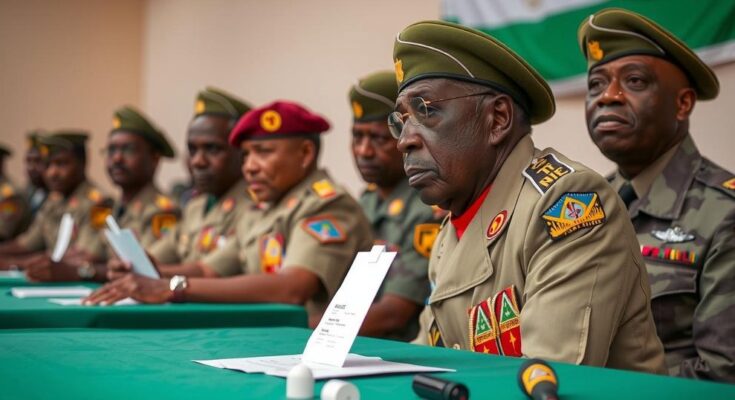Chadians are voting in a parliamentary election that marks the end of military rule, yet major opposition parties are boycotting. This election is Chad’s first in over a decade and follows a disputed presidential vote won by Mahamat Idriss Deby after taking power in 2021. The legitimacy of this electoral process remains under scrutiny due to the opposition’s absence.
Chadians are currently participating in a parliamentary and regional election aimed at concluding a three-year period of military rule. This election marks the first parliamentary vote in over a decade. However, the main opposition parties have chosen to boycott the election, citing concerns over its legitimacy. This vote follows a controversial presidential election held months prior, in which junta leader Mahamat Idriss Deby, who assumed power after his father’s death in 2021, was declared the winner.
The recent parliamentary election in Chad is significant as it is the first of its kind since military rule began following the death of President Idriss Deby Itno. The elections represent a critical juncture in Chad’s political landscape, which has been dominated by military leadership for several years. The boycott by major opposition parties has raised questions about the inclusive nature of the electoral process and the potential for restoring democracy in Chad.
In conclusion, the parliamentary election in Chad serves as a pivotal moment in the nation’s transition from military control towards potential democratic governance. Despite the historical context of this event, the boycott by the opposition reflects ongoing concerns regarding the legitimacy of the elections and the overall political climate. Observers will be closely monitoring the outcomes of this election and its implications for Chad’s political future.
Original Source: www.wdrb.com




